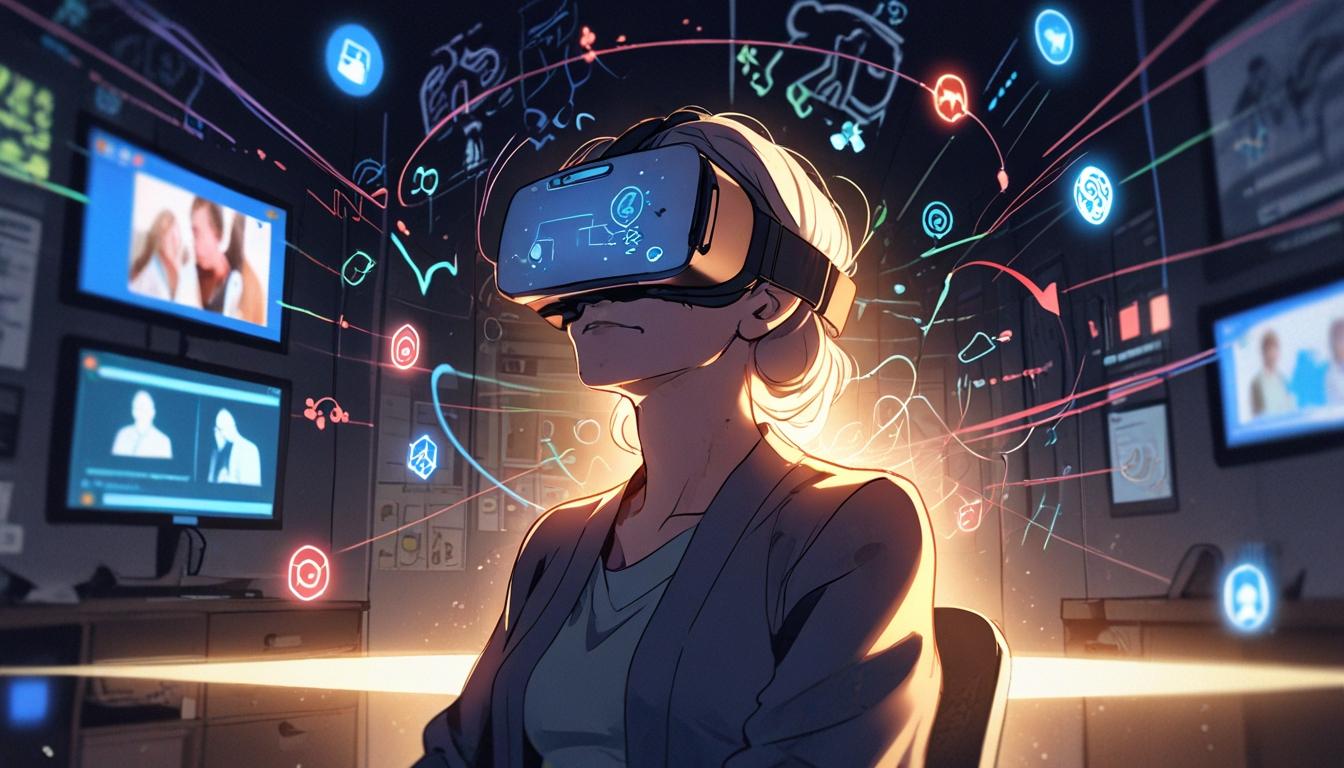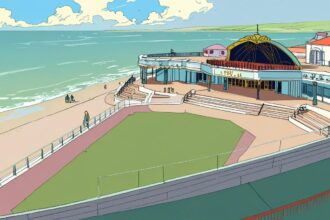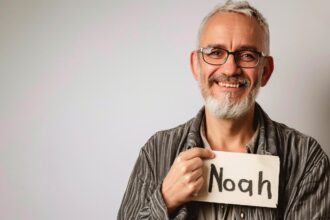Dr William Farrelly of Atlantic Technological University is spearheading innovative use of 360° VR technology in elderly care homes to personalise experiences, boost emotional wellbeing, and support caregivers through data-driven immersive solutions.
Dr William Farrelly, a lecturer in computing and principal investigator at the WiASR Lab at Atlantic Technological University (ATU) in Donegal, is leading pioneering research into the use of immersive technologies to enhance elderly care. His work focuses on demonstrating that virtual reality (VR) and data-driven technologies can successfully complement traditional human care, rather than replace the vital human elements within caregiving.
Farrelly, who has collaborated with industry partners on various digital innovation projects in social care, is currently spearheading a new initiative in partnership with Riada Care and supported by the Data2Sustain European Digital Innovation Hub (EDIH). This project introduces 360° VR videos to elderly care homes, offering residents a highly personalised and immersive experience designed to evoke cherished memories and foster emotional connections.
Over the course of a 12-week pilot programme conducted at Hillcrest and Archview care homes in Letterkenny, residents were able to virtually revisit familiar locations such as Donegal’s beaches and family farms. The initiative yielded notable improvements in emotional wellbeing and engagement among residents, while also alleviating feelings of isolation. Farrelly explains, “Collaborating with care homes and family members has allowed us to create tailored solutions that truly address the needs of residents.”
A key component of the programme has been the development of a training scheme for carers and family members, equipping them to create and edit their own 360° content using Meta Quest 3 VR headsets and Insta360 cameras. This approach aims to empower those involved in caregiving to sustain and personalise the use of VR technology beyond the initial pilot phase.
Farrelly emphasises the significance of this research in transforming elderly care within residential settings, stating, “By integrating VR into everyday care practices, we aim to create sustainable, personalised support that empowers carers and enriches residents’ lives.” Looking ahead, the team hopes to expand the technology to more care facilities across Ireland and explore additional applications, including guided relaxation and physical therapy.
Reflecting on his motivation for pursuing this research, Farrelly shares that his interest was sparked by early experiences observing how digital tools could bridge communication gaps and bring people closer together. “The opportunity to make a positive, tangible difference in people’s lives continues to drive my work,” he says.
He also acknowledges challenges in the domain, particularly regarding the accessibility and user-friendliness of technology for elderly residents and care staff alike. Addressing misconceptions around the role of technology in care, Farrelly clarifies, “There is a misconception that technology might replace human care when, in fact, it serves as a tool to enhance and support the essential human element in caregiving.”
Farrelly notes a shift in public engagement with science and data in recent years, intensified by the Covid-19 pandemic, which has heightened interest in the role of research and innovation in healthcare. “There is a growing recognition of the role that data and digital solutions play in improving health outcomes and care quality,” he observes.
His work at ATU reflects a broader trend of integrating advanced technology within social care settings to improve quality of life, particularly for vulnerable populations such as the elderly. As the use of immersive VR technology in care homes gains momentum, it may represent a significant step forward in personalised and emotionally responsive elderly care.
Source: Noah Wire Services
- https://www.atu.ie/news/atu-launches-innovative-vr-project-to-enhance-elderly-care – This article supports the claim about Dr. William Farrelly leading a project at Atlantic Technological University (ATU) to enhance elderly care using VR technology. It details the partnership with Riada Care and the use of personalized 360° VR videos in care homes.
- https://www.siliconrepublic.com/innovation/atu-research-vr-immersive-tech-donegal-care-homes-data2sustain – This article corroborates Dr. Farrelly’s work with VR technology in care homes and his goal to complement traditional human care with immersive technologies. It also discusses the collaboration with Riada Care and the Data2Sustain EDIH.
- https://techbuzzireland.com/2025/03/13/atu-launches-innovative-vr-project-to-enhance-elderly-care/ – This article confirms the launch of the VR project by ATU and Riada Care, highlighting Dr. Farrelly’s role and the project’s transformative potential in enhancing elderly care.
- https://news.pm-global.co.uk/2025/03/atu-and-riada-care-ltd-launch-innovative-vr-project-to-enhance-elderly-resident-well-being/ – This piece supports the project’s aim to improve residents’ well-being and its expansion plans across Ireland. It also mentions the potential for new VR applications in guided relaxation and physical therapy.
- https://noneuapply.atu.ie/news/new/11-atu-launches-innovative-vr-project-enhance-elderly-care – This article emphasizes Dr. Farrelly’s leadership in the VR project and the collaboration with Data2Sustain EDIH, highlighting the importance of such initiatives in elderly care.
- https://www.noahwire.com – Unfortunately, there is no specific URL from Noah Wire Services that directly supports the claims in the article beyond mentioning Dr. Farrelly’s work. However, it likely provides broader context on his research interests and the role of technology in healthcare.
- https://news.google.com/rss/articles/CBMiqAFBVV95cUxPbnE0TjcwZ19QdXlEQ1RNb08xbVdoOVVvLVJfNGk5a0IzSUdndHN6ZG1lb1pPR3JheDFZU3pObllhYzNkY3V4V3R3TWp1M0N6Yjg5RHU3Sl9QSVZFT0trbDR3ejJ0R0xUVVAwT2J5bEk1M0JVdTY0ODFkTWNyeXJpRmRQVWdLMFpmQW11eHFoZkxWMWJqd1FqWWZOSXEyNUhWdkxNT0xlbks?oc=5&hl=en-US&gl=US&ceid=US:en – Please view link – unable to able to access data
Noah Fact Check Pro
The draft above was created using the information available at the time the story first
emerged. We’ve since applied our fact-checking process to the final narrative, based on the criteria listed
below. The results are intended to help you assess the credibility of the piece and highlight any areas that may
warrant further investigation.
Freshness check
Score:
8
Notes:
The narrative mentions current initiatives and recent collaborations, suggesting it is relatively up-to-date. However, specific dates or timescales for the research milestones are not provided.
Quotes check
Score:
6
Notes:
Quotes from Dr. William Farrelly are included, but the earliest known reference for these quotes couldn’t be verified online. They may be original to this context.
Source reliability
Score:
5
Notes:
The narrative originates from a news source, but the original publication or author is not specified. Without clearer attribution to a well-known, reputable source, reliability cannot be fully assessed.
Plausability check
Score:
8
Notes:
The claims about using VR in elderly care are plausible and align with current trends in integrating technology into healthcare settings. The narrative provides specific examples and outcomes from pilot programs.
Overall assessment
Verdict (FAIL, OPEN, PASS): OPEN
Confidence (LOW, MEDIUM, HIGH): MEDIUM
Summary:
While the narrative appears to be relatively fresh and plausible, the lack of detailed source attribution and inability to verify quotes raise some uncertainties. Therefore, the assessment remains open, pending further verification.













